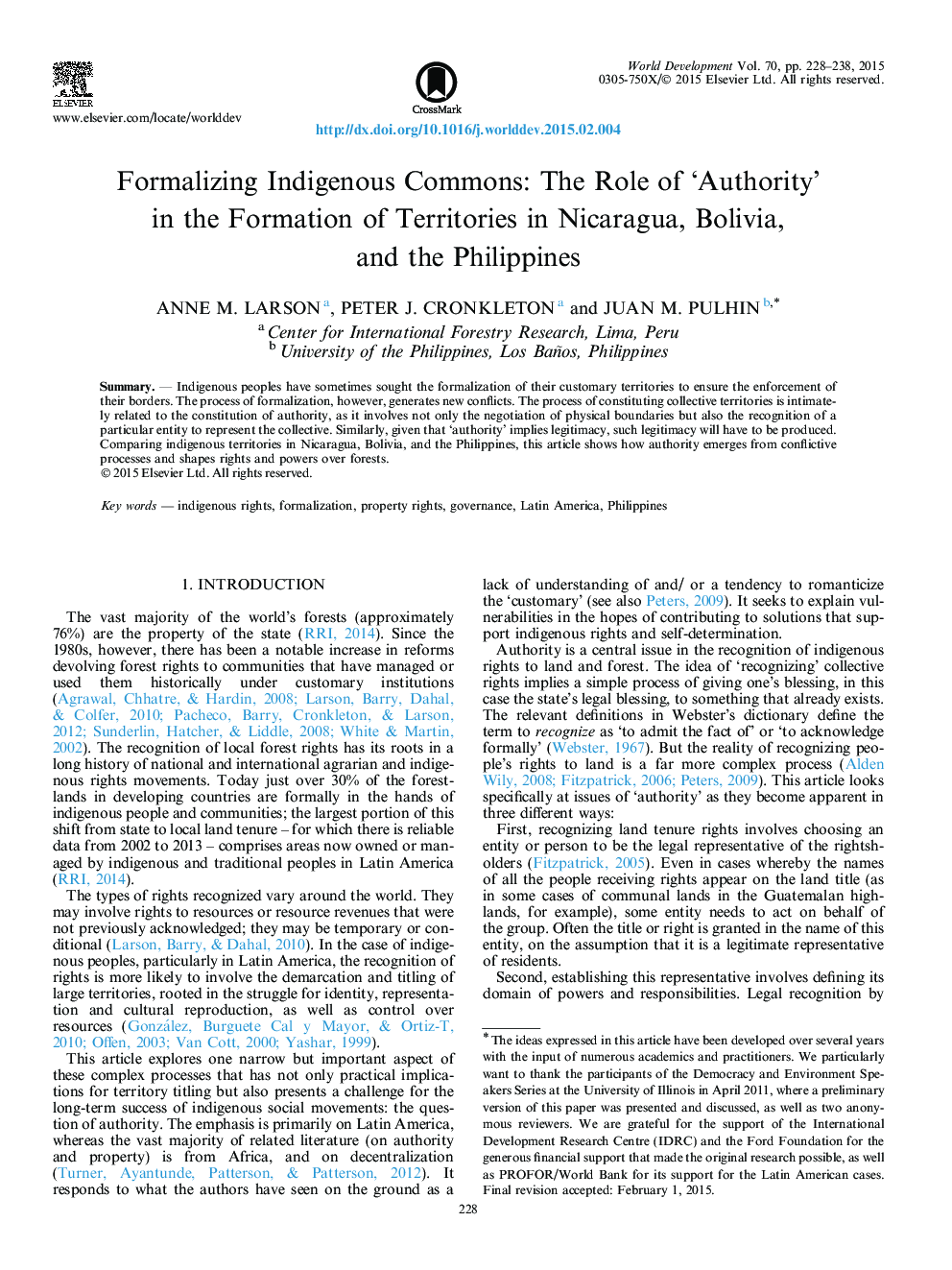| کد مقاله | کد نشریه | سال انتشار | مقاله انگلیسی | نسخه تمام متن |
|---|---|---|---|---|
| 7393905 | 1481148 | 2015 | 11 صفحه PDF | دانلود رایگان |
عنوان انگلیسی مقاله ISI
Formalizing Indigenous Commons: The Role of 'Authority' in the Formation of Territories in Nicaragua, Bolivia, and the Philippines
ترجمه فارسی عنوان
فرمالیته بومیان: نقش "قدرت" در تشکیل مناطق در نیکاراگوئه، بولیوی و فیلیپین
دانلود مقاله + سفارش ترجمه
دانلود مقاله ISI انگلیسی
رایگان برای ایرانیان
کلمات کلیدی
حقوق بومی، رسم سازی، حقوق مالکیت، حکومت، آمریکای لاتین، فیلیپین،
ترجمه چکیده
مردم بومی گاهی به رسمیت شناختن سرزمین های عادی خود برای تضمین اجرای مرزهای خود تلاش می کنند. با این وجود، فرایند رسمی سازی، منازعات جدید را ایجاد می کند. فرایند تشکیل سرزمین های جمعی به طور مستقل با قانون اساسی اقتدار مرتبط است، زیرا نه تنها مذاکره بر مرزهای فیزیکی بلکه شناخت یک نهاد خاص برای نمایندگی جمعی است. به همین ترتیب، با توجه به اینکه "اقتدار" به معنای مشروعیت است، چنین مشروعیتی باید تولید شود. این مقاله در مقایسه با مناطق بومی در نیکاراگوئه، بولیوی و فیلیپین، نشان می دهد که چگونه اقتدار از پروسه های متضاد حاصل می شود و حقوق و قدرت های بیش از جنگل ها را شکل می دهد.
موضوعات مرتبط
علوم انسانی و اجتماعی
اقتصاد، اقتصادسنجی و امور مالی
اقتصاد و اقتصادسنجی
چکیده انگلیسی
Indigenous peoples have sometimes sought the formalization of their customary territories to ensure the enforcement of their borders. The process of formalization, however, generates new conflicts. The process of constituting collective territories is intimately related to the constitution of authority, as it involves not only the negotiation of physical boundaries but also the recognition of a particular entity to represent the collective. Similarly, given that 'authority' implies legitimacy, such legitimacy will have to be produced. Comparing indigenous territories in Nicaragua, Bolivia, and the Philippines, this article shows how authority emerges from conflictive processes and shapes rights and powers over forests.
ناشر
Database: Elsevier - ScienceDirect (ساینس دایرکت)
Journal: World Development - Volume 70, June 2015, Pages 228-238
Journal: World Development - Volume 70, June 2015, Pages 228-238
نویسندگان
Anne M. Larson, Peter J. Cronkleton, Juan M. Pulhin,
